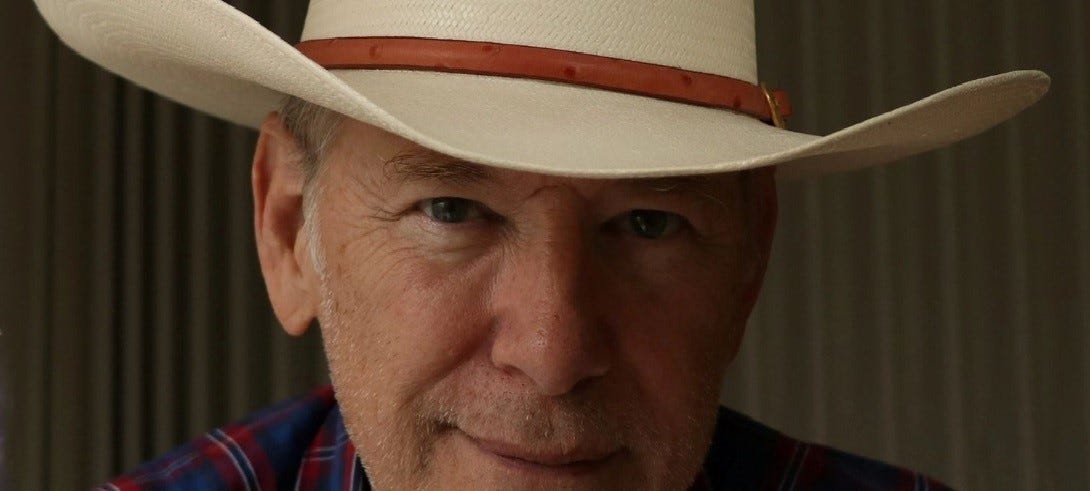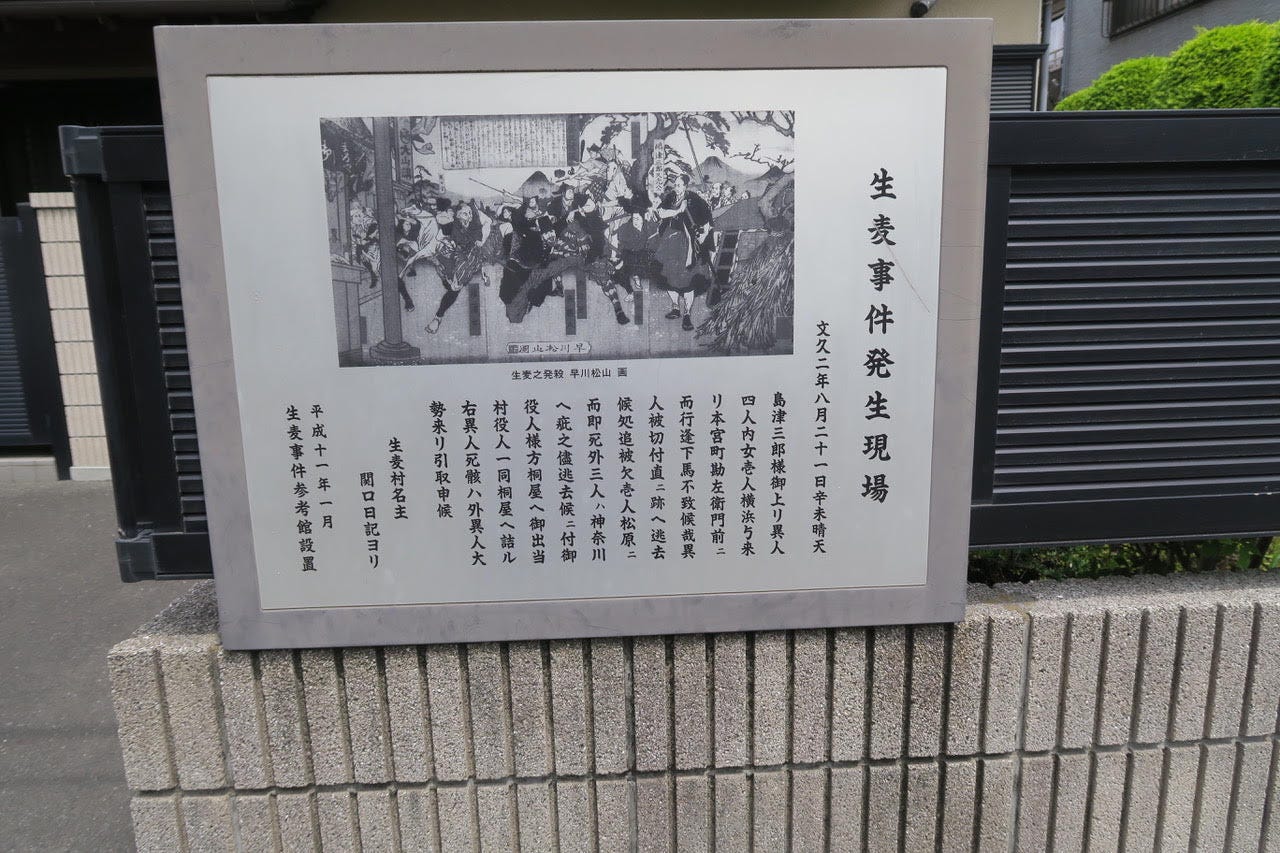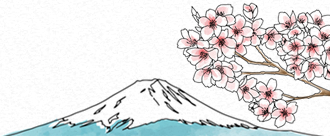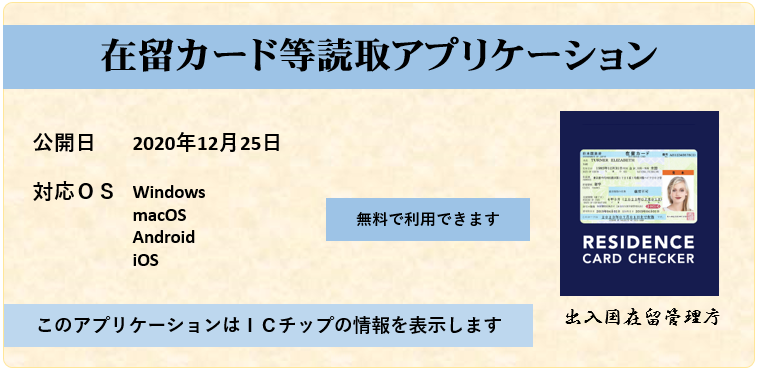mytest
Books, eBooks, and more from Debito Arudou, Ph.D. (click on icon):





![]()


UPDATES ON TWITTER: arudoudebito
DEBITO.ORG PODCASTS on iTunes, subscribe free
“LIKE” US on Facebook at http://www.facebook.com/debitoorg
https://www.facebook.com/embeddedrcsmJapan
http://www.facebook.com/handbookimmigrants
https://www.facebook.com/JapaneseOnlyTheBook
https://www.facebook.com/BookInAppropriate
If you like what you read and discuss on Debito.org, please consider helping us stop hackers and defray maintenance costs with a little donation via my webhoster:

All donations go towards website costs only. Thanks for your support!
Karen Hill Anton’s willful ignorance of history
A prominent spokesperson within Japan’s foreign community won’t admit racism happens in Japan unless it rises to the level of racism in America. That’s bad science.
By Debito Arudou. Courtesy Shingetsu News Agency, December 1, 2025. Text with links to sources follows under SNA link.
Visible Minorities: Karen Hill Anton’s Willful Ignorance of History
The original fount for this essay with extra links to sources archived at Debito.org here.
If you haven’t heard of Karen Hill Anton, she is well known as commentator on life in Japan. Living in Japan’s countryside since 1975 with an American husband and raising several interracial children, Anton has written and spoken widely on cross-cultural communication, her most famous work being the award-winning memoir “The View from Breast Pocket Mountain” (2020).
Anton’s accomplishments are impressive. Her LinkedIn lists diversity training consultancies at corporations such as Shinsei Bank, Corning Japan, Eli Lilly, and Citigroup. A Freeman Foundation Fellow and Plenary Speaker at JALT 2022, Anton has also been a member of the Jun Ashida Educational Foundation, the Shizuoka Human Rights Association, and the Board of Overseers at Temple University, Japan. Her gigs include 14 years writing the “Crossing Cultures” column for the Japan Times, and another 15 writing the “Another Look” column for the Chunichi Shimbun.
She has even advised the highest levels of the Japanese government, serving on the Internationalization in Education and Society Advisory Councils of Prime Ministers Obuchi and Hashimoto.
I respect this mightily, and said so when I met her at her home in 2024. But I’ve recently discovered her time-honored platform willfully ignores, minimizes, or outright dismisses the experiences of other Non-Japanese (NJ) Residents. That’s what this column is about.
A FLAWED METHODOLOGY TOWARDS RACISM IN JAPAN
In a recent Substack essay, “What Racism is – and isn’t – in Japan” (November 12), she offered herself as an example of a “visible minority,” citing her experiences dealing with people as an African-American woman in Japan.
Despite the essay’s title, Anton notes that Japan does distinguish between people based upon their physical appearance, such as a Japanese shopkeeper who grabbed her dreadlocks and asked if they were real. But for Anton, in Japan it’s more a matter of stupidity, rudeness, or poor behavior in individual interactions, not racism. Defining racism as a systemic, institutionally enforced exclusion from social, educational, or economic participation (as opposed to modern definitions involving the process of differentiation, “othering,” and subordination), Anton concludes that racism is not present in Japan like in the United States.
This sounds plausible until it becomes clear she is working backwards from a conclusion. She claims, “Any foreign child can go to any public school anywhere in Japan.”
That’s manifestly untrue. As reported on Debito.org and in Japanese media for decades, foreign children have been denied entry to Japanese schools. Even Visible Minorities, e.g., international children with Japanese citizenship, get bullied out of the system, as they are a frequent target of Japan’s self-appointed “hair police”—school officials who force children to cut, straighten, or dye their hair or be suspended. That’s why there are ethnic schools in Japan—so these children can somehow get an education.
How can this happen? Because, even using Anton’s definition, of something systemic and institutionally enforced: Japan’s Fundamental Law on Education (Kyouiku Kihon Hou) only guarantees primary and secondary education to citizens (kokumin), and has expressly been cited by authorities to deny foreign children entry.
This is should not be news to Anton, since there is, for example, an underclass of now-grown undereducated South American workers less than an hour’s local train ride from her.
Regardless, Anton narrates a story about her fourth-grade daughter dealing with a classmate who “said something mean” to her. In Anton’s telling, all it took was her husband reporting it to the principal and the very next day the boy’s mother visited the Anton household offering cakes, a flower bouquet, and an apologetic son. Anton concluded, “As far as I was concerned, the matter was finished. There was no victim here.”
Good that all was resolved so well, what with the school administration and the classmate’s parents being so cooperative, and that scars from the experience did not seem to linger in Karen’s child. But this experience is hardly universal. Debito.org has catalogued many cases where the parents of Visible Minorities weren’t so lucky in their experiences either administratively or interpersonally. Some have even resulted in lawsuits with damages awarded, or in suicides. This is all available with a quick Google search, but those facts would spoil Anton’s story.
Anton instead places the onus on NJ Residents to avoid being treated this way: “In the places I’ve called home in Japan, if you follow the rules for putting out your garbage, and participate in community obligations like cutting roadside weeds, it could be said your outward appearance causes no particular problems.”
This is reasonable advice, but not a panacea. It also “could be said” there are systemic barriers (such as “Japanese Only” signs and establishments, legally exclusionary government policies, and even bullying Neighborhood Associations) to Visible Minorities, harassed and excluded no matter how much effort they put into community effort and assimilation. Plenty of journalistic and government surveys evidence the effects of this.
But the biggest flaw in Anton’s essay is her constant minimizing of discrimination in Japan by comparing it to Jim Crow America of the 1950s.
A commenter to Debito.org responded best:
“As a black European in Japan, this habit of American activists to hold racism in the US up as some kind of yardstick is frustrating to say the least. ‘Bad things that happened in the US don’t happen here, therefore there’s no problem,’ is a terrible method of evaluation, not least because the conversation is supposed to be about issues in Japan, no need to drag a different country into it. I’m not the only one whose daily life is a series of frustration and (mostly small) humiliations caused by Japan’s ethnocentrism and resulting racism. ‘At least you’re not getting lynched’ offers no reassurance, it’s only a bizarre way to shift the focus of the conversation to a different, unrelated, topic. It’s like telling a homeless person that they should be glad that at least they’re not terminally ill. Not helpful.”
A WILLFUL IGNORANCE OF HISTORY
What spurred me to write this column was the essay’s conclusion, where Anton discounts a famous 1999 lawsuit by a Brazilian journalist named Ana Bortz. Refused entry into a jewelry store in nearby Hamamatsu, Bortz won in Shizuoka District Court on the grounds of “racial discrimination” (jinshu sabetsu). It was the first court decision acknowledging that discrimination in Japan is in fact racial.
Anton’s take?
ANTON: “The woman, who filed a discrimination lawsuit, and won—as well she should have—was described by a foreign journalist as ‘the Rosa Parks of Japan.’ Rosa Parks? Surely not the same Mrs. Rosa Parks, revered by Americans and people of conscience worldwide, for her courage and principled stance in literally sitting down while standing up to injustice. She succeeded in galvanizing a nation in challenging hundreds of years of oppression and institutionalized racism, protected by law, in the most powerful country on earth. That Rosa Parks? I don’t think so.”
That was the last sentence Anton’s of essay: A straw-man argument that because some lazy journalist compared Bortz to Parks, it’s somehow… not racism… enough?
Two issues: One, I worked with Ana Bortz, and she never compared herself to Parks. Two, Anton here commits an egregious sin of omission. She neglected to mention the subsequent Otaru “Japanese Only” Public Baths Case, which my friends and I took all the way to Japan’s Supreme Court, and where lower courts unanimously upheld the Ana Bortz precedent.
Or the subsequent Steve McGowan Case, where an African and African-American were refused entry to an eyeglass shop, and we caught the manager on tape expressly saying he refused Steve because he is black and he personally hates black people.
Or the Yener Case. Or the Aigi Golf Club Case. Or the umpteen other lawsuits, many successful, regarding racial discrimination. This is disrespectful to the people who toiled for years at great personal cost to fight discrimination.
THE DAMAGE DONE
I blogged a paragraph-by-paragraph critique of Anton’s essay at Debito.org and notified her via her Substack comments. She responded to say, “Anyone who wants to take me down, scold me, disagree with my experience, perspective, and opinion, is free to.” Hours later she deleted my comment. When I followed up to ask why, she wrote, “I do not want to clutter my site.”
When counterarguments are treated as “clutter,” it’s clear that what’s going on here is a willful ignorance of history on a complex topic.
But given her prominent position, Anton’s antics are hurting people.
Another person texted me to say,
“Thank you for calling Karen Anton Hill out. I felt the same after her plenary at JALT a few years ago… The few people I have mentioned this to have not liked me pointing this out about her work. As a darker skinned minority whose kids were brutally bullied, who has experienced real racism, her platform and narrative allows real concerns to be dismissed. Good luck though, she is great at ingratiating herself… and is great at self-promotion. I have learned that I can’t overtly criticize her.”
So I will, with this SNA column. It’s about time.
But why me? Because this denialism goes against all our work. Let me establish some credibility here:
I know about racial discrimination in Japan, particularly towards Japan’s Visible Minorities, to the point where I was awarded a PhD on it in 2014 from Meiji Gakuin University. My doctoral dissertation became monograph Embedded Racism: Japan’s Visible Minorities and Racial Discrimination (Lexington Books, 2015, 2nd Ed. 2022). My other books include “Japanese Only”: The Otaru Hot Springs Case and Racial Discrimination (Akashi Shoten, Inc: English and Japanese 2004, updated 2006 and 2013), and Handbook for Newcomers, Migrants, Immigrants and Immigrants to Japan (coauthored with Akira Higuchi; Akashi Shoten 2008, updated 2012).
I have also maintained Debito.org, an active archive of human rights issues in Japan, since 1995, offering more than thirty years of research and historical record. This includes 15 years of direct fieldwork cataloging “Japanese Only” signs and rules on businesses nationwide in Japan.
My point is this isn’t just my personal experience; I speak with peer-reviewed authority on this subject. That’s why Anton’s column is such a shock—it overwrites a history that people like me have curated over decades to combat the natural revisionism of time.
Granted, we could merely put it down to the shortcomings of a memoirist’s methodology—in other words, “If it didn’t happen to me, it’s not part of my life memoir.” But the blind spot in this methodology is that it dismisses other people’s cases. How many times have you heard naysayers argue something like, “I personally haven’t seen it, so did it really happen? It’s not the Japan I know.”
But there’s ignorance, and then there’s willful ignorance. Even when I presented facts and a historical record counter to her narrative, Anton refused to address any of them. Her retort: “I do not want to engage with you.”
She can, of course, disagree with the case as I presented it, or offer other facts to counter mine. Instead, she chose to just delete it and not engage.
Karen is entitled to her worldview, of course. But if she’s speaking on how to live life in Japan as a self-described “visible minority” advising Japan’s corporate world on issues of diversity and inclusion, even meeting policymakers at the highest levels of Japan’s government, she needs to get it right. She’s not. Instead she promotes a dangerous denialism of how NJ and Visible Minorities experience Japanese society.
DENIALISM AS A MARKETING GIMMICK
When I followed up some more, Anton did respond briefly to say, “I do not hold myself ‘as a template about how to live in Japan’ or anything else. That’s your interpretation. I write about my experience. I do not seek agreement. Ever.”
Yet in public press releases, she has been marketed not only as an “author, columnist, and consultant,” but also as “a model of successful cultural adaptation,” “lecturing widely” as a “bridge between cultures.”
That’s what makes Anton’s schtick a business.
Her whole mindset of, “Just get out there and contribute more to your communities and your skin color won’t matter,” is more gimmick than fact.
But it sells well.
A Japanese policymaker will especially like hearing it’s the foreigners’ fault they aren’t trying hard enough to be accepted. It’s a lot easier than calling for the government to legally guarantee equal treatment and access, or for the dismantling of systems that perpetually differentiate, “other,” and subordinate minorities.
And it’s especially appealing when, even in the clearest cases of discrimination in Japan, a long-term foreigner dismisses them because it’s not like America. Even if this process excuses racism here because it’s worse over there.
It’s classic “whataboutism.” But it works. It’s gotten Anton a seat the table at even the highest levels of government.
It’s also one reason why it’s been difficult to get “Newcomer” Visible Minorities to unite and speak with one voice in the form of, for example, domestic anti-defamation leagues. (The “Oldcomer” ethnic Koreans and Chinese do it much better.) Because spokespeople within the minorities’ own ranks undermine any potential social movement and self-disempower—by saying all we have to do is cooperate and behave. After all, it worked for these spokespeople. They made a life out of it.
For those who think I’m unduly picking on Karen Hill Anton, let the record show I have similarly called out others who pander: Kyoto Seika University President Oussouby Sacko, who similarly denies there is racism in Japan by dumbfoundingly claiming he is treated differently in Japan not because he is black, but because he does not “look Japanese.” Or Japan Times columnist Gregory Clark, who has profiteered mightily from selling Japan’s uniqueness myths in his nationwide speaking tours.
Or journalist Henry Scott-Stokes, who staved off late-life penury by putting his name to books ghostwritten by Japan’s far right denying Japan’s wartime atrocities. Or Tony Laszlo, protagonist of the bestselling “My Darling is a Foreigner” manga series, who completely deleted the online history of our pre-Debito.org activist organization, Issho.org, before it had an impact on his wife’s book sales. I’ve even criticized sacred cows like famed translator Donald Keene, who, on the day of his naturalization into Japan, denigrated NJ residents during a press conference by joking he, unlike them, was not a criminal.
There are lots of people like this in Japan: Ideologues proffering snake-oil narratives that are popular and profitable. Pandering pays. Why wait for Japanese society to toss you a few crumbs from the table? Say what people want to hear and they’ll even give you a seat at it.
THE PLIGHT OF THE COLUMNIST: TO PANDER OR NOT TO PANDER?
One more point: Like Anton, I too have been a columnist for 40 years, including 17 years at the Japan Times, eleven years under the “Just Be Cause” byline. I understand that having a clear and consistent perspective sustains an audience.
But over time the question becomes: How do you keep that audience as you age? Do you continue with the topics that attracted your audience in the first place? Or do you pursue new avenues of inquiry and hope your readers follow?
Either way, you should be open to learning new information, or you’ll just have stale columns running on retreads. But as you absorb new things and get new data, you should be intellectually honest enough to change your mind.
Old stale columnists can fall into a trap of relying on personal experience as a source in itself. After all, the province of the elderly is the sanctity of their memory. Your past is yours to recall and portray. In your own mind, nobody can assail your impressions of what happened to you. Only you witnessed it all.
And memoirists by definition make this their methodology. But you still have to be responsible with your platform, especially if you’re going to talk about a subject as complicated as racism. Be aware of your own limitations. How you’re remembering things. How you’re gathering information. How you’re interpreting the world.
Stories not grounded in history and social science are merely extended anecdotes. A sample size of one.
Yes, memoirists are entitled to their own world. It’s their memoir, after all. But I have a problem when they go outside their world and try to overwrite history (especially one I’ve painstakingly curated) as a marketing gimmick. When they minimize, ignore, deny, or even delete facts and cases because they don’t fit their narrative, that’s not just dogmatism. That’s dishonesty. And when it’s hurting people, it needs to be called out.
Look at the big picture here: Denialism may be Karen Hill Anton’s survival strategy in Japan, but it’s not going to help Japan’s Visible Minorities, the very group she claims to speak for.
Remember that Prime Minister Sanae Takaichi recently rose to power in part by blatantly lying about foreigners kicking park animals. Now watch as Cabinet minister Kimi Onoda (who herself was a dual citizen of Japan and America until she too was called out) finds new ways to scapegoat NJ Residents for Japan’s ills.
All this pandering by NJ spokespeople will mean little in the end. The powers-that-be will still treat you as second-class citizens and residents no matter how hard you try to assimilate.
The onus is not on NJ to scrape for acceptance. The onus is on Japanese society and legal structures to treat all of its legal residents, regardless of citizenship, as human beings with equal rights.
Karen Hill Anton’s methodology doesn’t lend itself to pushing for that. It’s certainly been an effective survival strategy for her, as she’s accomplished a lot for herself. But it should be seen for what it always has been: An isolated sample size of one. Not a template. And as she keeps on keeping on, vigilance: She should not be permitted to minimize, ignore, dismiss, or overwrite the history of other NJ in Japan.
ENDS
======================
Do you like what you read on Debito.org? Want to help keep the archive active and support Debito.org’s activities? Please consider donating a little something. More details here. Or if you prefer something less complicated, just click on an advertisement below.



















































 \
\
















